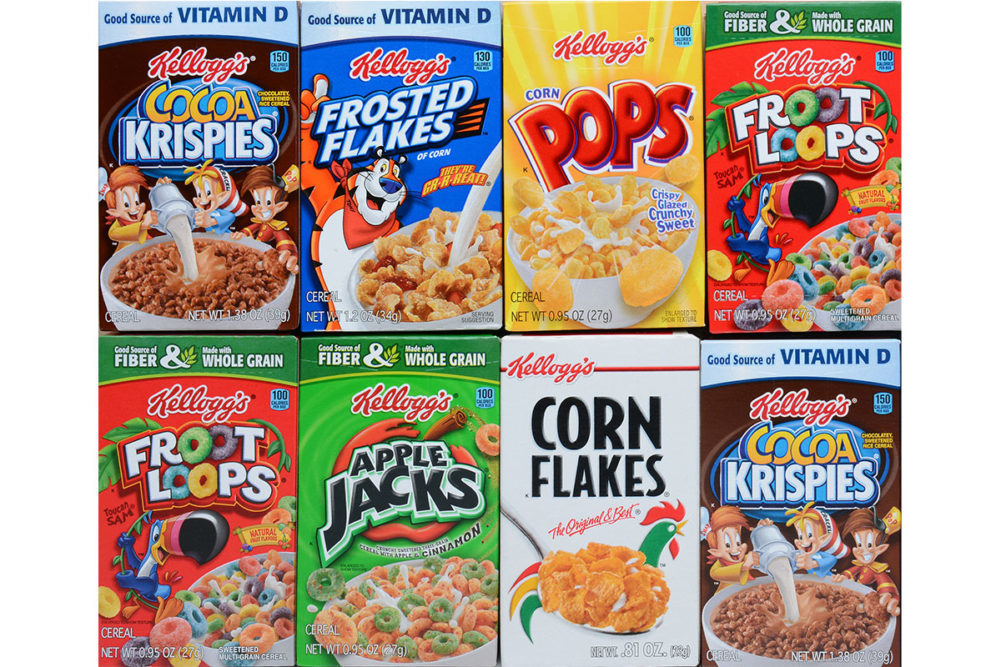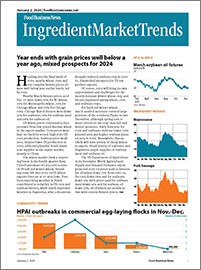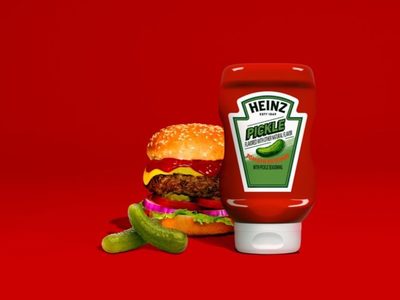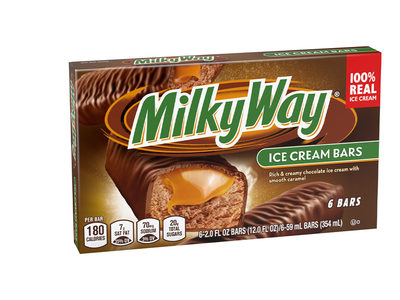BATTLE CREEK, MICH. — “From this point forward, everything we do is in service of cereal,” said Gary H. Pilnick, chairman and chief executive officer of WK Kellogg Co. In WK Kellogg’s first earnings call as an independent company following a spinoff from Kellogg Co., Mr. Pilnick delivered an impassioned and optimistic assessment of where the cereal business is headed.
In its first quarterly financial results, Kellogg said earnings were up and sales were down in the three months ended Sept. 30.
WK Kellogg became an independent company Oct. 2, and Mr. Pilnick offered investment analysts an update on a business plan he shared in an August Investor Day presentation before the spinoff. Kellogg’s snack and other businesses were renamed Kellanova.
“This all started with the belief the cereal business would be stronger as an independent company,” he said in a Nov. 8 call. “By doing so, we would be able to direct resources toward strategy and unlock the full strategy of our business.
“We will focus only on winning in cereal. We will integrate the business end to end to deliver better execution. We will invest in capabilities, technology and infrastructure and will do so in a targeted, highly disciplined manner. None of this would have occurred but for the spin.”
Going forward, the Kellogg sales force will be focused on and dedicated to selling only cereal, Mr. Pilnick said. In the past, the Kellogg Co. sales force was integrated and responsible for several categories, “most of which were a higher priority than cereal,” he said.
In addition to developing an ambitious innovation plan for 2024, Mr. Pilnick said WK Kellogg is not “waiting until 2024 to win in the market.”
“Here is just one example,” he said. “Our newly integrated commercial team recently relaunched the Bear Naked brand, which was disproportionately hurt due to manufacturing complexities as a result of the fire and strike. The relaunch focused on increasing taste appeal, driving fun and took an end-to-end approach to enhance the eating experience, new packaging to highlight the food and brand and a new media campaign that surpassed our expectations.”
Key to achieving the company’s financial objectives will be investing to modernize the company’s supply chain. Mr. Pilnick said WK Kellogg’s balance sheet will allow the business “to go from maintaining to modernizing.” He noted that this investment will be key to capturing 500 basis points of margin expansion discussed at Investor Day.
Central to the company’s plans will be consolidating production, Mr. Pilnick said. He noted an approximately 50% cost differential between the company’s highest and lowest cost facilities.
Net income in the third quarter was $42 million, equal to 49¢ per share on the common stock, up 83% from $23 million, or 27¢ per share, in the third quarter of 2022.
Commenting on the sales decrease, David McKinstray, chief financial officer, said the drop had been expected and does not change the company’s prospects for achieving its financial objectives for the year.
“Volume was impacted by increasing levels of price elasticity, lapping inventory rebuild in the prior-year period and a more disciplined promotional approach focused on balancing volume and profitability,” he said. “As previously mentioned we relaunched the business in the second half of 2022, which included increasing our commercial investment and led to elevated levels of promotional activity. On price elasticity we have seen increases in Q3 versus levels we previously saw throughout this inflationary cycle. These levels are tracking with expectations we laid out on Investor Day, and we expect they will continue into the fourth quarter and early 2024 as we lap list price actions. All this was expected, and we remain confident in our ability to deliver our expected financial commitments for the year.”
On a positive note, Mr. McKinstray said gross margins in the quarter widened by 290 basis points to 28.5%, reflecting the benefit of positive price mix.
Year-to-date pro forma net income was $95 million, equal to $1.10 per share, down 25% from $127 million, or $1.48, a year earlier. Sales were $2.11 billion, up 4.6%.





